Copyright 2010 by Jim Bernhard Designed by LeAnna Wetter Smith All Rights Reserved. No part of this book may be reproduced in any manner without the express written consent of the publisher, except in the case of brief excerpts in critical reviews or articles. All inquiries should be addressed to Skyhorse Publishing, 555 Eighth Avenue, Suite 903, New York, NY 10018. Skyhorse Publishing books may be purchased in bulk at special discounts for sales promotion, corporate gifts, fund-raising, or educational purposes. Special editions can also be created to specifications. www.skyhorsepublishing.com 10 9 8 7 6 5 4 3 2 1 Library of Congress Cataloging-in-Publication Data Bernhard, Jim. www.skyhorsepublishing.com 10 9 8 7 6 5 4 3 2 1 Library of Congress Cataloging-in-Publication Data Bernhard, Jim.
Words gone wild: fun and games for language lovers/by Jim Bernhard. p. cm. Includes index. ISBN 978-1-61608-014-3 (alk. paper) 1.
English language--Humor. I. Title. PN6231.W64B45 2010 827.008--dc22 2010003329 Printed in China Dialogue from A Night at the Opera, screenplay by George S. Kaufman and Morrie Ryskind, produced by Metro-Goldwyn-Mayer, 1935. Used by permission of Warner Bros.
Entertainment Inc.  Excerpt from Gravity's Rainbow, by Thomas Pynchon, The Viking Press, 1973; Penguin Books editions, 1995, 2000.
Excerpt from Gravity's Rainbow, by Thomas Pynchon, The Viking Press, 1973; Penguin Books editions, 1995, 2000.  Lines from A Void by Georges Perec, translated from the French by Gilbert Adair, reprinted by permission of David R. Godine, Publisher, Inc. Copyright 1969 by ditions Denol, Translation copyright HarperCollins Publishers 1994.
Lines from A Void by Georges Perec, translated from the French by Gilbert Adair, reprinted by permission of David R. Godine, Publisher, Inc. Copyright 1969 by ditions Denol, Translation copyright HarperCollins Publishers 1994.  Washington Crossing the Delaware, by David Shulman and others, from The Enigma, June 1936, and December, 1980.
Washington Crossing the Delaware, by David Shulman and others, from The Enigma, June 1936, and December, 1980.
Reprinted by permission of National Puzzlers League, publisher of The Enigma.  Dopamine, Epinephrine, Valentine and So many poems I have read, by Paul Bernhard. Used by permission of Paul Bernhard.
Dopamine, Epinephrine, Valentine and So many poems I have read, by Paul Bernhard. Used by permission of Paul Bernhard.  Chacun Gille (11), from Mots d'Heures: Gousses Rames by Luis d'Antin Van Rooten, copyright 1967 by Courtlandt H. K. Van Rooten.
Chacun Gille (11), from Mots d'Heures: Gousses Rames by Luis d'Antin Van Rooten, copyright 1967 by Courtlandt H. K. Van Rooten.
Used by permission of Viking Penguin, a division of Penguin Groups (USA) Inc.  Excerpt from If I Can't Sell It, I'll Keep Sitting On It, by Andy Razaf and Alexander Hill, copyright 1935. Used by permission of Joe Davis Music, Ellen Davis Morris, 9150 Marlin Drive, Boerne, TX 78006.
Excerpt from If I Can't Sell It, I'll Keep Sitting On It, by Andy Razaf and Alexander Hill, copyright 1935. Used by permission of Joe Davis Music, Ellen Davis Morris, 9150 Marlin Drive, Boerne, TX 78006.  For Ginger
For Ginger
CONTENTS

Puns: Homographs, Homophones, Assonants, and Feghoots Clerihews and Limericks Lipograms, Univocalics, Anagrams, Palindromes, Charade Sentences, Rhopalics, Isoliterals, and Isosyllabics Crossword Puzzles Wellerisms, Tom Swifties, Croakers, and Envelope-Pushers Rhymes Without Reason Spoonerisms, Malapropisms, Mondegreens, Eggcorns, and Holorimes Acrostic Puzzles Double Entendres, Newspaper Headlines, Knock-Knock Jokes Verse for Special Occasions Cryptic Puzzles Euphemisms, Highly Irregular Conjugations, Tongue-Twisters, Theater-by-the Numbers, Rhyming Slang, and Name Games
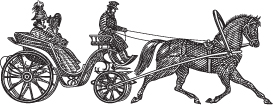
PREFACE
 Easy writing's curst hard reading.
Easy writing's curst hard reading. Richard Brinsley Sheridan,
Clio's Protest The title of this book
Words Gone Wildis not entirely fair to the hardworking words between its covers, striving mightily to entertain you. In fact, the words in this cast of characters do their jobs often under more constraints than their lazier cousins who work in serious prose. A word in a pun or a poem or a puzzle has no understudy; no convenient synonym stands by to replace the
mot juste in a well-turned epigram; there are no do-overs for words that must be precise if they are to do their job properly.
Oh, occasionally you'll find some words in this book that have slipped into careless behaviorthose in the malapropisms and spoonerisms, for example. And there are also a fewthe ones you'll find in the limericks and double entendres, especiallywhose naughty conduct may be justly chastised by some readers. But by and large these words gone wild are the most disciplined you will ever come across. Their wildness is of the same sort that inspires the split-second reactions of a crackerjack cast in a rip-roaring farce or that propels a slapstick comedian taking a pie in the face. The timing is everything, and there is no room for error. The word wild in the title refers to the spirit that motivates these verbal performers: a propensity for mischief, surprise, and laughter.
Their wildness is a freeing of the syntactical bonds that hold back other, more staid words and make them boring. The words in this book just want you to have fun. And creating fun is very hard work. This book is certainly not the first foray ever ventured into the quirky world of words, and I am sure it will not be the last. Having fun with words has an eternal fascination, and I am grateful to such pioneers in wordplay as Homer (not Simpsonthe Greek one), Aristophanes, the Apostle Matthew, Chaucer, Shakespeare, Sir John Davies, John Dryden, Dr. S. S.
Gilbert, Mark Twain, Hilaire Belloc, G. K. Chesterton, Oliver Wendell Holmes Sr., Dr. William Archibald Spooner, Edmund Clerihew Bentley, Eugene Field, Ernest Vincent Wright, Georges Perec, T. S. H. H.
Auden, Ogden Nash, Roy Bongartz, David Shulman, Dmitri A. Borgmann, Howard Bergerson, Jeff Grant, Leigh Mercer, Gelett Burgess, Richard Armour, Morris Bishop, Luis d'Antin van Rooten, Nol Coward, Cole Porter, Lorenz Hart, Ira Gershwin, Andy Razaf, Bertrand Russell, Robert Benchley, Dorothy Parker, H. L. Mencken, W. C. Fields, George S.
Kaufman, Morrie Ryskind, Oscar Levant, Bennett Cerf, James Thurber, Louis Untermeyer, Ben Gross, Groucho Marx, Yogi Berra, David Crystal, William S. Baring-Gould, Gershon Legman, Arthur Wynne, Eugene T. Maleska, William Safire, Edwin Newman, Trude Michel Jaffe, Richard Maltby Jr., Stephen Sondheim, Elizabeth Kingsley, Will Shortz, Thomas H. Middleton, Emily Cox, Henry Rathvon, Bill Morgan, Alistair Ferguson Ritchie, Edward Powys Mathers, Derrick Somerset Macnutt, Adrian Bell, Tom Lehrer, Judith Viorst, Ken Parkin, William Poundstone, Reginald Bretnor, Thomas Pynchon, Willard R. Espy, Ross Eckler, Russell Baker, Sylvia Wright, John Mella, Jon Carroll, and many others whom I have shamefully over-looked. They know who they are.
Many of them are quoted or referred to in the text of this book, and all of them have amused, instructed, or inspired me. For definitions, etymologies, and historical facts, I have relied on Webster's New International Dictionary of the English Language
Next page
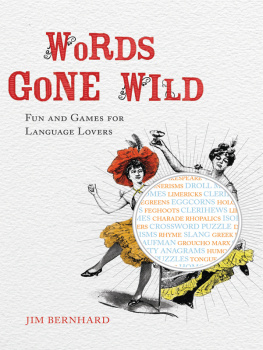
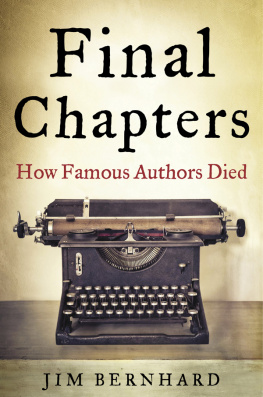
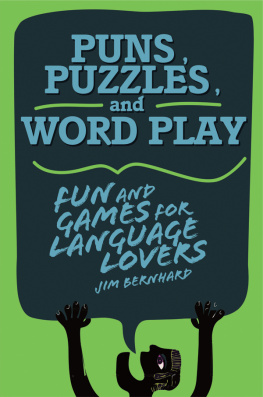



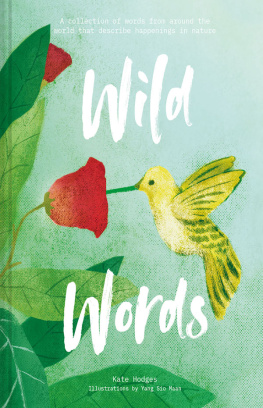
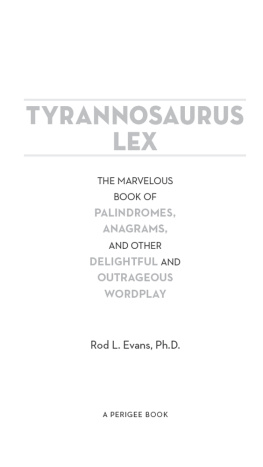
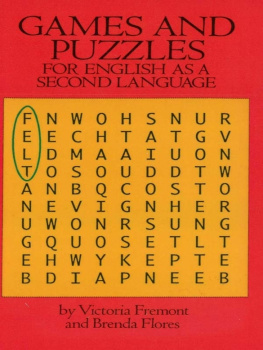
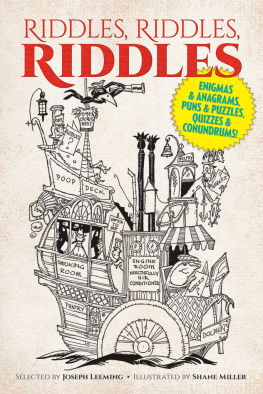
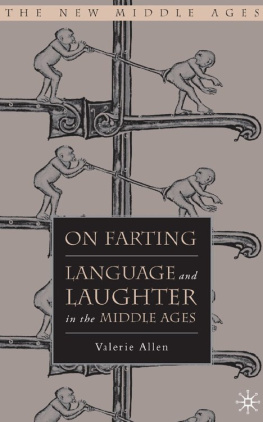
 Excerpt from Gravity's Rainbow, by Thomas Pynchon, The Viking Press, 1973; Penguin Books editions, 1995, 2000.
Excerpt from Gravity's Rainbow, by Thomas Pynchon, The Viking Press, 1973; Penguin Books editions, 1995, 2000.  For Ginger
For Ginger
 Puns: Homographs, Homophones, Assonants, and Feghoots Clerihews and Limericks Lipograms, Univocalics, Anagrams, Palindromes, Charade Sentences, Rhopalics, Isoliterals, and Isosyllabics Crossword Puzzles Wellerisms, Tom Swifties, Croakers, and Envelope-Pushers Rhymes Without Reason Spoonerisms, Malapropisms, Mondegreens, Eggcorns, and Holorimes Acrostic Puzzles Double Entendres, Newspaper Headlines, Knock-Knock Jokes Verse for Special Occasions Cryptic Puzzles Euphemisms, Highly Irregular Conjugations, Tongue-Twisters, Theater-by-the Numbers, Rhyming Slang, and Name Games
Puns: Homographs, Homophones, Assonants, and Feghoots Clerihews and Limericks Lipograms, Univocalics, Anagrams, Palindromes, Charade Sentences, Rhopalics, Isoliterals, and Isosyllabics Crossword Puzzles Wellerisms, Tom Swifties, Croakers, and Envelope-Pushers Rhymes Without Reason Spoonerisms, Malapropisms, Mondegreens, Eggcorns, and Holorimes Acrostic Puzzles Double Entendres, Newspaper Headlines, Knock-Knock Jokes Verse for Special Occasions Cryptic Puzzles Euphemisms, Highly Irregular Conjugations, Tongue-Twisters, Theater-by-the Numbers, Rhyming Slang, and Name Games 